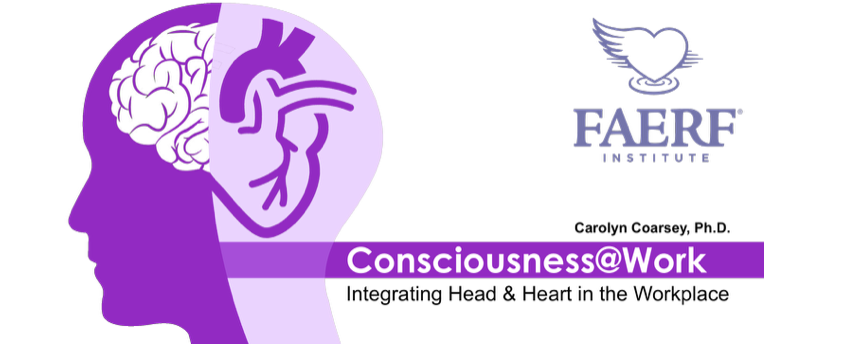
The Family Assistance Education & Research Foundation (FAERF) has been at the forefront of the evolution of emergency management, combining the head-heart approach for a fully integrated response to survivors of traumatic loss. Practicing consciousness in the workplace involves caring for people first, without exception.
Raising Compassion Consciousness through Mental Health First Aid
Written by: Carolyn V. Coarsey, Ph.D.
May 2024
“It is clear that workplaces need to understand the importance of mental health in their employees, not just out of compassion, but also as a core element in promoting workplace productivity and efficiency, as well as reducing staff turnover.”
-Mary Jacobson, M.D., Chief Medical Officer, Hello Alpha
Mental health first aid is the ability to assist someone struggling with their mental health or in an emotional crisis. The need for this and the gap in the market for training led to an organizational body called Mental Health First Aid (MHFA). MHFA (https://www.mentalhealthfirstaid.org/) offers short programs for employees to learn and implement mental health assistance skills.
Since May is mental health awareness month in the United States, this article will focus on the program that began in the US in 2008. However, MHFA was started in Australia in 2000 by an educator, also a mental health consumer, and a professor who was a mental health researcher. FAERF offers MHFA certification to its members worldwide by partnering with international providers. Profits from FAERF-sponsored MHFA programs support research on establishing best practices for supporting survivors of traumatic loss in the workplace.
“Workplace leaders are seeing more and more crises, and employees…want the workplace to be part of the solution for them.”
-Jodi J. Frey, Ph.D., University of Maryland, School of Social Work
Employers have traditionally provided resources to employees and encouraged them to practice self-care, change behaviors, and seek help if they need it. The pandemic showed inadequacies in the healthcare system worldwide. Even if an employee reaches out for help, getting an appointment can take months, and many providers don’t take insurance, which sets up an inequitable system for access to care
Mental Health First Aid Certification
MHFA certification is offered virtually as well as through in-person training classes. The training is designed to help everyone support friends, family, and community members who may be experiencing a mental health or substance use challenge. By knowing how to offer assistance in their time of need, a trained responder can make a difference in someone’s recovery journey. The MHFA intervention is organized around the action plan ALGEE, which stands for Assess, Listen, Give Reassurance and Information, Encourage Appropriate Professional Help and Encourage Self-Help and other Support Strategies.
Just as someone trained in CPR maintains life until medical professionals are on the scene, someone certified in MHFA provides support and encouragement in emotional and psychological crises until others with additional training and skills can take over, should a crisis escalate. Above all else, MHFA helps reduce the stigma associated with persons confronted with mental health issues. The following facts taken from the National Council’s website clearly indicate the growing need for greater understanding and support in this field:
1 in 5 US adults experience mental illness each year.
Only 47.2% of US adults with mental illness received treatment in 2021.
1 in 20 US adults experience serious mental illness each year.
Only 64.4% of US adults with serious mental illness received treatment in 2021.
1 in 6 US youth have a mental health condition, but only half receive treatment.
50% of all mental illnesses begin by age 14 and 75% by age 24.
The National Council of Mental Wellbeing Lists Free Resources to Offer Help and Support
SAMHSA’s National Helpline https://www.samhsa.gov/find-help/national-helpline is a 24/7 treatment referral and information service.
988 Suicide & Crisis Lifeline http://988lifeline.org/ offers 24/7 confidential support for people in distress.
The Trevor Project http://www.thetrevorproject.org/ provides 24/7 crisis support services to LGBTQ+ young people.
Find Treatment.gov http://findtreatment.gov/ helps people seek treatment for mental and substance use disorders.
National Institute of Mental Health http://www.nimh.nih.gov/health/find-help outlines additional mental health services.
For more information on how you can become certified in MHFA and help support FAERF-sponsored research, please contact Rosangela Maxwell (rosangela.maxwell@aviem.com).
Watch faerf.org to learn more about upcoming dates for virtual and in-person training classes.
